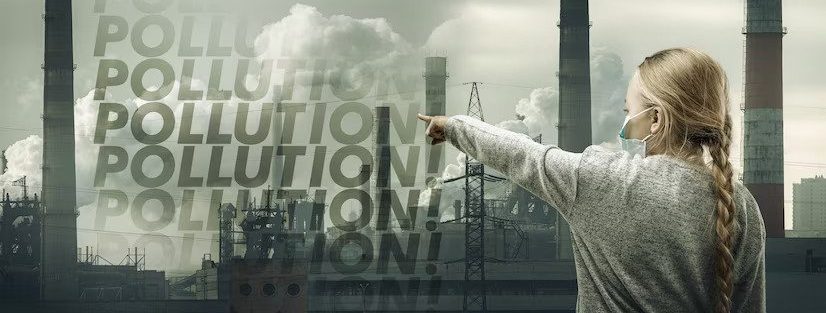Conventional energy sources, such as coal, oil, and natural gas, are major contributors to various forms of pollution. Here are the key types of pollution associated with conventional energy:
Air Pollution: The combustion of fossil fuels releases pollutants into the atmosphere, including sulfur dioxide (SO2), nitrogen oxides (NOx), particulate matter (PM), and volatile organic compounds (VOCs). These pollutants contribute to the formation of smog, acid rain, and poor air quality. They are also linked to respiratory diseases, cardiovascular problems, and other adverse health effects.
Greenhouse Gas Emissions: Conventional energy sources are the primary drivers of greenhouse gas emissions, particularly carbon dioxide (CO2), which is the main contributor to climate change. The excessive release of CO2 and other greenhouse gases traps heat in the Earth’s atmosphere, leading to global warming and climate disruption. These changes result in rising sea levels, extreme weather events, and ecological imbalances.
Water Pollution: Conventional energy production involves the extraction and transportation of fossil fuels, which can lead to water pollution incidents. Oil spills from offshore drilling and transportation accidents can have devastating effects on marine ecosystems, wildlife, and coastal communities. Furthermore, the disposal of wastewater from coal mining and oil and gas operations can contaminate water sources with toxic substances and heavy metals.
Land and Soil Contamination: Extraction and production activities associated with conventional energy sources can cause land and soil contamination. For example, coal mining can leave behind abandoned mines, spoil heaps, and acid mine drainage, which can damage soil fertility and water quality. Similarly, oil and gas drilling operations can result in soil pollution through spills, leaks, and improper waste disposal.
Environmental Habitat Destruction: The extraction and use of conventional energy sources often involve significant habitat destruction. Coal mining, for instance, can lead to the removal of mountains, deforestation, and disruption of ecosystems. The construction of infrastructure like power plants, pipelines, and refineries can fragment habitats, displacing wildlife and threatening biodiversity.
Waste Generation: Conventional energy production generates substantial amounts of waste materials. Coal combustion produces coal ash, a residue containing toxic substances like arsenic, mercury, and lead. Improper disposal or management of coal ash can contaminate water bodies and pose risks to human and environmental health. Additionally, the extraction and processing of oil and gas generate waste products such as drilling muds, produced water, and sludges.
Addressing the pollution associated with conventional energy sources is crucial for mitigating environmental and health risks. Transitioning to cleaner and renewable energy alternatives, such as solar, wind, hydro, and geothermal power, can significantly reduce pollution and contribute to a more sustainable and environmentally friendly energy system. Additionally, implementing emission reduction technologies, improving energy efficiency, and adopting stricter environmental regulations are essential for minimizing the negative impacts of conventional energy on our planet.

